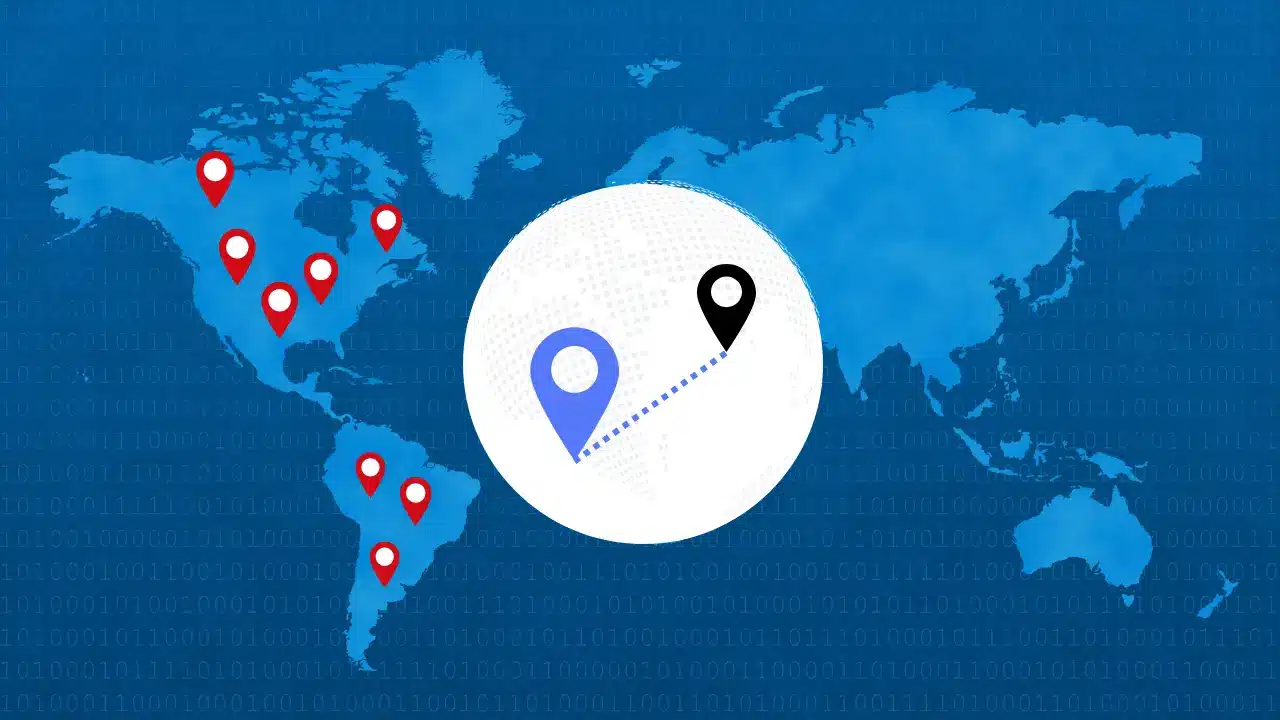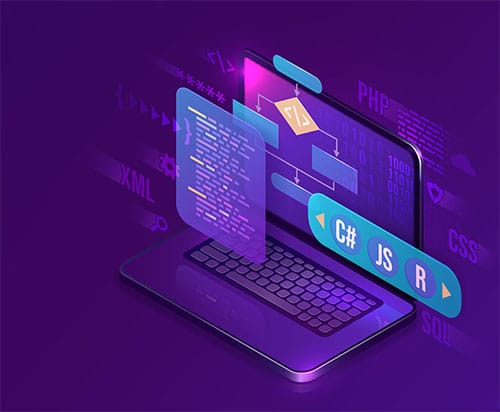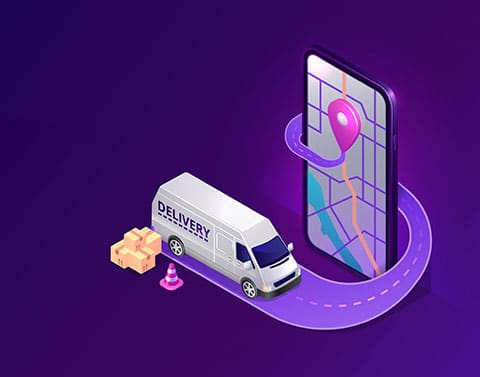Are you looking to develop any micro-SaaS product for your audience? If yes, then you are at the right place. The micro-SaaS market is expected to reach $720.44 billion by 2028.
In this blog, we will be discussing the 20+ most profitable b2b micro SaaS ideas for product development. You can not only create these SaaS ideas to make money but also serve your audience with new and advanced features. Now without spending much time let us start with the list of micro-SaaS ideas for you.
What is a Micro-SaaS Business?
Software as a Service (SaaS) eliminates the need for traditional software installations, offering users on-demand access via the Internet. Micro-SaaS takes this concept further by focusing on niche markets, and delivering highly targeted solutions for specific needs.
Key Takeaways
- Micro-SaaS businesses are thriving by targeting niche markets.
- AI, blockchain, and automation are key to innovation.
- Success relies on smart development, marketing, and pricing models.
- Industries like healthcare, team management, and invoicing offer lucrative opportunities.
- Personalization and niche-focused solutions will drive the next wave of micro-SaaS growth.
Profitable Micro SaaS Business Ideas
1. Web Analytics
By 2027, the web analytics market is expected to have a CAGR (Compound Annual Growth Rate) of 15.2%.
Web analytics are the tools that people use to track the analytics of their websites. For example, how many people are visiting their website, how many people are clicking on the call-to-action button in between the websites, and many more? In short, these web analytics tools will help you to manage your websites.
2. Team Management
During the lockdown, mostly all companies started working from home. This is a time when companies realized the difficulty of managing a team. If you are looking to develop some ideas in this field, then you can also add some unique features to it such as integrating your team management micro-SaaS tool with artificial intelligence and meeting scheduling features, etc. You can be excited to know that expert predictions say that around 85% of corporate applications will be on SaaS.
3. Cookery micros SaaS-based applications
The demand for cookery-based micro-SaaS applications has increased since the lockdown. Predictors find that the recipe and the cookery-based apps are expected to reach approximately $421.03 mn markets. There were no house helpers at that time, so everyone was learning to cook with the help of these applications. These applications are still in demand. If you have an interest in these fields, you can also develop one of the best and most unique cookery micros SaaS-based applications.
4. Invoicing
Invoicing is also one of the SaaS business ideas for small businesses. Invoices are used by offline and online businesses. You can create any software in this field. To enhance the security of your application you may also add some blockchain SaaS ideas to your invoicing applications.
If you are looking to develop some ideas in this field, then we recommend you start your research with your competitors as we have a lot of software with the same purpose. You would be happy to know that by 2030, the E-invoicing market is expected to increase beyond USD 16.68 billion. So, this could be the best idea to think about.
5. Healthcare Services
In 4-5 years, the wellness market is expected to grow by 18.5% CAGR from 2022 to 2030. The demand for micro-SaaS in the healthcare industry has been growing. More people are using smartphones and looking for some application from which they can schedule appointments with the doctor and receive their reports. They will help you to transform your idea into an application and to find the weaknesses and strengths of the system.
6. Customer Resources Management (CRM)
Customer Relationship Management (CRM) software is crucial for businesses to manage interactions with clients and prospects, track sales pipelines, and improve customer satisfaction. A micro-SaaS CRM solution with customizable features could be highly appealing to small businesses and startups that need flexible, cost-effective tools to manage customer relationships. With CRM software remaining in high demand, a specialized platform that offers features like easy integration with other software, AI-powered customer insights, and automation for sales and marketing tasks could stand out in the crowded CRM space. Customizability would allow businesses to tailor the platform to their specific needs, offering greater flexibility.
7. Fitness Tracking Apps
Fitness apps have become an integral part of many people’s health routines, offering features like exercise tracking, diet logs, and personalized workout plans. A fitness manager app that tracks exercise routines, diet, and other health metrics could help users achieve their fitness goals. Adding AI-driven recommendations for diet and exercise plans based on individual health data could enhance user engagement and deliver personalized experiences. Additionally, social features like challenges, progress sharing, and community support could increase motivation and retention. With the increasing focus on personal health and fitness, there’s a significant demand for fitness-tracking apps that provide value and results.
8. Tracker for Personal Goals
Personal goal tracker is also one of the best niches on which you can develop your micro-SaaS product. Personal goal tracker applications can help people to set daily, weekly, and monthly targets. You can also add functionalities by providing rewards and free coupons once your user achieved his target. In this way, more people and the audience get attracted to your application.
9. Grocery Delivery Platforms
The demand for online grocery shopping and delivery has been steadily increasing, driven by convenience and shifting consumer preferences. A micro-SaaS solution for grocery delivery could cater to startups by simplifying the development process with no-code tools and pre-built templates. This would allow small businesses to quickly launch and scale their grocery delivery platforms. Features like AI-based inventory management, personalized shopping recommendations, and route optimization for delivery could make the platform more efficient and user-friendly. With the growing popularity of e-commerce and contactless shopping, this micro-SaaS idea could meet a real need in a rapidly expanding market.
10. Pharmaceutical Service
These applications can help your users to track products related to the pharmaceutical industry such as medicines. You must have seen our grandparents and parents often forget to track their medicines. In these situations, micro-SaaS applications providing pharmaceutical services can help. Older people can keep track of their medicines and other related stuff to avoid the end-minute hassle.
11. Testimonial Management Tool
Testimonials play a key role in the development of services. It can also help in creating a positive image in front of your audience. With feedback and testimonials, you can be able to get the real performance of your product or services. You can create software that will help other companies to handle their testimonials. If you are looking to develop any micro-SaaS tool, you can also give the testimonial management tool a try.
12. Employee Engagement Platform
Companies are often searching for the best employee engagement platforms. As per the requirement, recruiters are hiring employees. For some companies, it is becoming difficult to manage their employees as there are many other things related to the employees that a company needs to manage. You can help such companies with some unique ideas and develop some micro-SaaS engagement tools to manage their employees’ data.
13. Personal Finance Tracker App
These platforms can help your audience to manage their expenses. You add some features such as your application can help your audience to generate the final amount they have in their hand after adding their monthly expenses. You can also add features in which your user may be able to take the help of artificial intelligence to plan their monthly expenses. This will also help your audience to decide smartly based on their salary.
14. Sales Management Tool
These platforms can be used by groups and individuals. You may create a micro-SaaS platform that can help artists and companies to manage sales. Your platform may also provide functionality for freelancers who are working with more clients. Sales management tools not only help to manage sales but also can help to have timely feedback for payment-related stuff. For more such suggestions you can contact us. We have SaaS ideas for small businesses to make your application even more unique.
15. Health & Wellness Platform
You may develop some health and wellness tracking platforms for your audience. You may include features that can help to monitor the health of your audience. Your application can also help individuals to schedule appointments with doctors and remind them in case they forget to visit their doctor. This kind of application can also help them to keep track of their medicines and other medical-related products.
16. Feedback Software for Students
Some college and school students still find it difficult to share feedback about their needs related to their studies for example if any student wants to say something positive or he/she may have some idea to start some new processes within the college but hesitate to discuss in front of the class and other students. Then in this case you can create any application that can help these students to share their ideas as feedback via an online portal.
17. Social Media Tracking Micro SaaS Application
This application can help to manage your social media presence or any other company’s social media presence if you are developing any application for that company. With this application, you can create the best marketing campaigns for the product you are selling. Buyers might go through your social media pages before making any deal. So, it is better to maintain your social profile. Buyers can also ask questions under the post and expect fast quick responses from your end. You can create applications to track your social media presence with some additional unique and advanced features.
18. Content Management System
There is a lot of content out there and the existing companies and people may find it difficult to manage this content. This content can be in the form of text, graphics, videos, etc. We need some good micro-SaaS-based content management tools. The most important thing that every content creator faces is to post the content on time whether on YouTube or other social media platforms. You may develop some content management tool with auto post facility so that bloggers and content creators can set their time of post and start working on some other tasks.
19. Email Marketing
This is one of the most profitable micro-SaaS-based products in the list of 20 best SaaS (Software as a Service) products. The SaaS email marketing tools have a few advantages such as high reach accessibility, and cost-effectiveness. If you are looking for SaaS ideas to make money, then this is one of the best ideas. You can surely start working on it. You would be happy to know that by 2023, there will be a significant growth in active email users. According to Statista, active email users will be about 4.3 billion.
20. Journaling
It is simply a process of writing thoughts on paper like a diary. Some people are introverts who have a pool of thoughts in their minds and hesitate to share their thoughts with someone else. An online diary can help these kinds of people. Your application can help these people to write what they are thinking. This will also make them mentally fit. On the other hand, you can earn money by running down advertisements and there is a chance that you can collaborate with other applications as well.
21. Training and Learning
The training and e-learning market is expected to have a 20% CAGR shortly. Learning and training courses are one of the best ideas for micro-SaaS products. Nowadays, online courses are popular among children and adults. Working professionals are also opting for online weekend courses. Several existing applications are working on this idea. Although this field has great competition, we cannot deny that. But this field also has countless opportunities on which you can work. You can also add some advanced features that make your application unique.
22. Online Risk Monitoring Tools
You can also develop online risk monitoring SaaS-based tools. These tools can help to track future online risks for any business. This tool may track your social media handles to understand your reach and then find the risk when that affects the sales and image of the company. This can be an extremely useful idea for companies and businesses.
23. Habit Tracker for Students and Professionals
Habit tracker applications allow us to track habits, such as eating habits. In case you are taking more calories than you need then this application will notify you. If you are looking forward to developing such an application, then you can add some features to it. Such as you can collaborate with diet experts and doctors that will help people to get rid of any unhealthy habits. You can also add push notifications in case of prolonged use of smartphones and laptops by students and professionals.
24. Event Management Tools
Event planning involves multiple tasks, from ticketing to registration and attendee management. A micro-SaaS event management platform could simplify these processes by offering an all-in-one solution. Features like analytics dashboards, customizable registration forms, and social media integration could enhance the platform’s functionality. With the rise of virtual and hybrid events, an event management tool catering to these formats could attract event organizers and businesses.
25. Time Tracking Tools
Time tracking is essential for freelancers, remote workers, and businesses managing productivity. A micro-SaaS time tracker with features like automated time logging, invoicing integration, and productivity analytics could provide significant value. Customizable reporting options and seamless integration with project management tools could further enhance its appeal. As remote work continues to grow, demand for efficient time-tracking solutions is expected to remain strong.
26. Pet Care Apps
Pet owners increasingly seek tools to manage their pets’ health and well-being. A micro-SaaS pet care app that offers features like vaccination reminders, health record management, and appointment scheduling with veterinarians could cater to this niche market. Additional features like pet activity tracking and dietary recommendations could enhance user engagement. With pet ownership on the rise, this app could find a devoted user base.
27. Travel Planning Platforms
Planning trips can be complex and time-consuming. A micro-SaaS travel planning platform that integrates itinerary creation, booking comparisons, and personalized recommendations could simplify the process. Features like expense tracking, offline access, and group collaboration could further enhance the user experience. As travel continues to rebound post-pandemic, innovative travel planning tools have significant potential.
28. Subscription Management Tools
With the rise of subscription-based services, users often struggle to track and manage their subscriptions effectively. A micro-SaaS subscription management tool that offers features like cancellation reminders, spending analysis, and negotiation assistance for better rates could solve a common pain point. Integration with banking apps and secure payment tracking could further enhance its functionality.
Turn your Micro SaaS Idea into Reality!
Get a Free Consultation with our App Development Team.
What Factors Should You Consider When Choosing a Micro SaaS Idea?
When choosing a micro-SaaS idea, it is essential to consider the target market to ensure the success of the product. Understanding the needs, preferences, and pain points of the target audience can help in creating a solution that addresses their specific problems and provides value. By identifying the target market early on, entrepreneurs can tailor their products to meet the demands of their customers, increasing the chances of adoption and retention.
Additionally, focusing on a specific niche market allows for more targeted marketing efforts, enabling the business to reach the right audience with the right message. Overall, considering the target market when choosing a micro-SaaS idea is crucial for building a product that resonates with customers and drives growth.
When choosing a micro-SaaS idea, it is important to consider the size of the team that will be working on the project. Larger teams may be able to tackle more complex ideas and develop more robust solutions, but they also come with higher overhead costs and potential coordination challenges. On the other hand, smaller teams may be more agile and able to pivot quickly but may lack the resources and expertise needed to fully execute more ambitious ideas.
When considering ideas for a micro-SaaS business, flexibility is a crucial factor to keep in mind. By choosing a flexible idea, you give yourself the freedom to adapt to changing market trends and customer needs. This provides you with the opportunity to pivot your business model if necessary or to expand and grow your offering as your customer base evolves.
Considering a revenue model when choosing a micro-SaaS idea is essential for the success of any business venture. A revenue model outlines how a company will generate income and sustain profitability over time, making it crucial for a business to have a clear understanding of how it will monetize its product or service. By analyzing different revenue models, such as subscription-based, usage-based, or freemium, entrepreneurs can determine which one aligns best with their target market and business goals.
Advantages of Micro SaaS Applications
You can choose one or two from these ideas if you are looking to develop some ideas into reality. There is no need for a big budget and investments. Let us look at the advantages of SAAS products. This section will help you to understand why SaaS-based applications are in demand.
- Accessibility: The accessibility of applications has increased over the years with the help of SaaS.
- Speed: Since there is no need to install applications on the machines, SaaS products take less time to load, and hence the overall speed of the applications increases.
- Support: Since this market focuses on niche purposes. Hence it is manageable to support micro-SaaS products.
- Independent of location: You can work from anywhere with your SAAS products. You can use any SaaS product if you have internet and machines. Your location is no longer a barrier if you want to develop your micro-SaaS product.
How to Validate a Great SaaS Idea?
To validate your SaaS product idea, you need to follow a few steps:
- Define your application goal: First, you need to define the purpose of your idea. Why do you want to develop an application using this idea? What problems will your application target? What will be your target audience?
- Define minimum success criteria for your application: In this step, you will figure out the most critical assumption in your idea.
- Testing of your idea: Then you need to test your idea. You need to figure out if you need any tools to test your idea. You can also get the help of an IT company, JumpGrowth. We will help you in the technical evaluation process of your idea.
- Validate: Then final validation will take place. Whether you want to move ahead with this idea or not.
Also Read: How to convert a SaaS idea into a successful business? Complete Guide
Market Trends and Statistics
Micro-SaaS is a rapidly growing sector, with new technologies like artificial intelligence, machine learning, and blockchain driving innovation. Businesses that successfully capitalize on emerging trends, such as remote work solutions, healthcare tech, or AI-powered platforms, are likely to see significant growth. Understanding market trends and leveraging relevant statistics can help entrepreneurs identify the most profitable niches. Case studies of successful micro-SaaS businesses like Calendly, Zapier, and Notion can provide valuable insights into how small teams can scale products efficiently.
Development Challenges
Developing a micro-SaaS product comes with unique challenges. These include bootstrapping, managing a small but effective team, handling technical debt, and ensuring scalability. Entrepreneurs often struggle with limited resources, making it critical to build lean but efficient teams that can deliver high-quality products without overextending themselves. To overcome these challenges, many micro-SaaS founders turn to no-code or low-code tools, lean startup principles, and agile development practices to minimize risk and maximize output.
Marketing and Sales for Micro-SaaS
Micro-SaaS companies must be strategic in how they market their products. Content marketing, social media marketing, and affiliate marketing are effective strategies for driving awareness and attracting customers. Building a strong content strategy around educational resources and thought leadership can help position the brand as an industry expert. Paid ads and influencer partnerships can also be effective for scaling reach. Additionally, customer testimonials and case studies are essential for establishing trust and showcasing the value of the product.
Pricing Strategies for Micro-SaaS
Pricing models play a key role in the success of a micro-SaaS business. Common pricing models include subscription-based pricing, freemium models, and pay-as-you-go plans. Subscription models offer predictable recurring revenue, while freemium models can attract a wide user base and convert free users into paying customers over time. Pay-as-you-go models can work for more specialized services where users pay only for the features they use. The key is to find a balance that reflects the value of the product while being attractive to the target market.
What is the Future of Micro-SaaS?
The future of micro-SaaS is bright as businesses continue to embrace cloud-based solutions for everything from team management to healthcare. Emerging technologies like AI, blockchain, and machine learning will continue to drive innovation in this space, creating opportunities for micro-SaaS businesses to offer more powerful, efficient, and secure solutions. As micro-SaaS companies become more niche-focused and specialized, the market will become even more fragmented, allowing for personalized and tailored products that meet the specific needs of different industries.
Summary
Micro-SaaS is a thriving market with numerous opportunities for entrepreneurs to develop innovative products that solve real problems. Whether you’re focusing on team management, health and wellness, or invoicing, the key to success lies in identifying emerging trends and leveraging technology to provide value. With careful attention to development challenges, effective marketing, and a clear pricing strategy, micro-SaaS businesses can scale and achieve long-term success.
We hope you find this information regarding micro-SaaS business ideas appropriate for you. If you are still confused about your idea of developing an application. We have 20+ years of experience related to b2b SaaS software development. Reach out to us for more insights on building, marketing, and scaling your micro-SaaS product. Let’s turn your idea into a profitable business!
Need help building your scalable Micro SaaS platform?
Contact us for a custom solution.
Frequently Asked Questions
Q: How do you produce micro-SaaS ideas?
You may follow the process given below to select the best micro SAAS idea:
- Make a list of micro niches of your interest.
- Then based on your potential and familiarity, select one niche.
- Then you can create a landing page specific to your service
- Develop MVP (Minimum Viable Product)
- Start selling your micro-SaaS services.
Q: Which Micro SaaS Ideas Have the Highest Potential for Success in 2025?
Remote team collaboration tools have become an essential part of modern businesses, especially in today’s world where many employees work from different locations. These tools help teams to communicate efficiently, share documents and information, and collaborate on projects seamlessly.
Q: What is a Micro SaaS, and how is it different from a traditional SaaS?
Micro SaaS refers to small software-as-a-service businesses that provide a specialized, niche solution to a specific problem. Unlike traditional SaaS companies, micro-SaaS businesses focus on developing a single product or service for a small, targeted market segment. This allows them to quickly iterate, test, and validate their product, leading to faster growth and higher customer retention rates.
Q: How much does it cost to develop a Micro SaaS product?
- SaaS Basic: $30–50,000+
- SaaS Average: $50,000–$100,000+
- Saas Advanced: $140,000–$150,000+
Also Read: 25+ Mobile App Ideas for Startup Businesses
 AptaCloud is your trusted Microsoft-certified partner, specializing in delivering a comprehensive range of cloud and infrastructure solutions tailored to meet your business needs. From Microsoft Azure and Office 365 to advanced infrastructure management services, we empower businesses with cutting-edge technology that ensures scalability, security, and operational efficiency. Our expertise extends to implementing, managing, and optimizing Microsoft services, enabling organizations to streamline their operations, enhance productivity, and reduce costs. At AptaCloud, we are committed to providing reliable, secure, and innovative solutions that help businesses thrive in the ever-evolving digital landscape.
AptaCloud is your trusted Microsoft-certified partner, specializing in delivering a comprehensive range of cloud and infrastructure solutions tailored to meet your business needs. From Microsoft Azure and Office 365 to advanced infrastructure management services, we empower businesses with cutting-edge technology that ensures scalability, security, and operational efficiency. Our expertise extends to implementing, managing, and optimizing Microsoft services, enabling organizations to streamline their operations, enhance productivity, and reduce costs. At AptaCloud, we are committed to providing reliable, secure, and innovative solutions that help businesses thrive in the ever-evolving digital landscape. AptaCloud is your trusted Microsoft-certified partner, specializing in delivering a comprehensive range of cloud and infrastructure solutions tailored to meet your business needs. From Microsoft Azure and Office 365 to advanced infrastructure management services, we empower businesses with cutting-edge technology that ensures scalability, security, and operational efficiency. Our expertise extends to implementing, managing, and optimizing Microsoft services, enabling organizations to streamline their operations, enhance productivity, and reduce costs. At AptaCloud, we are committed to providing reliable, secure, and innovative solutions that help businesses thrive in the ever-evolving digital landscape.
AptaCloud is your trusted Microsoft-certified partner, specializing in delivering a comprehensive range of cloud and infrastructure solutions tailored to meet your business needs. From Microsoft Azure and Office 365 to advanced infrastructure management services, we empower businesses with cutting-edge technology that ensures scalability, security, and operational efficiency. Our expertise extends to implementing, managing, and optimizing Microsoft services, enabling organizations to streamline their operations, enhance productivity, and reduce costs. At AptaCloud, we are committed to providing reliable, secure, and innovative solutions that help businesses thrive in the ever-evolving digital landscape.


























